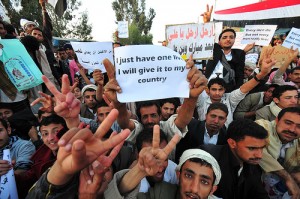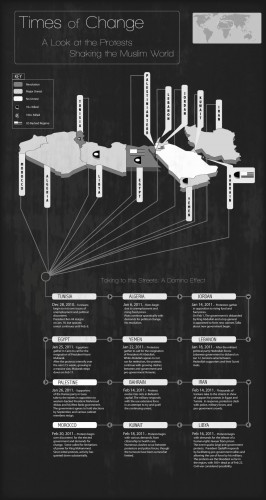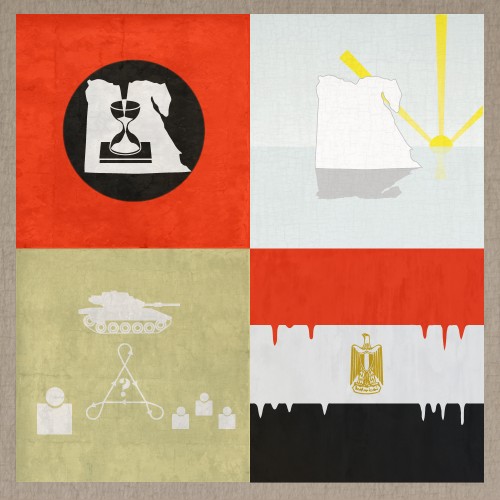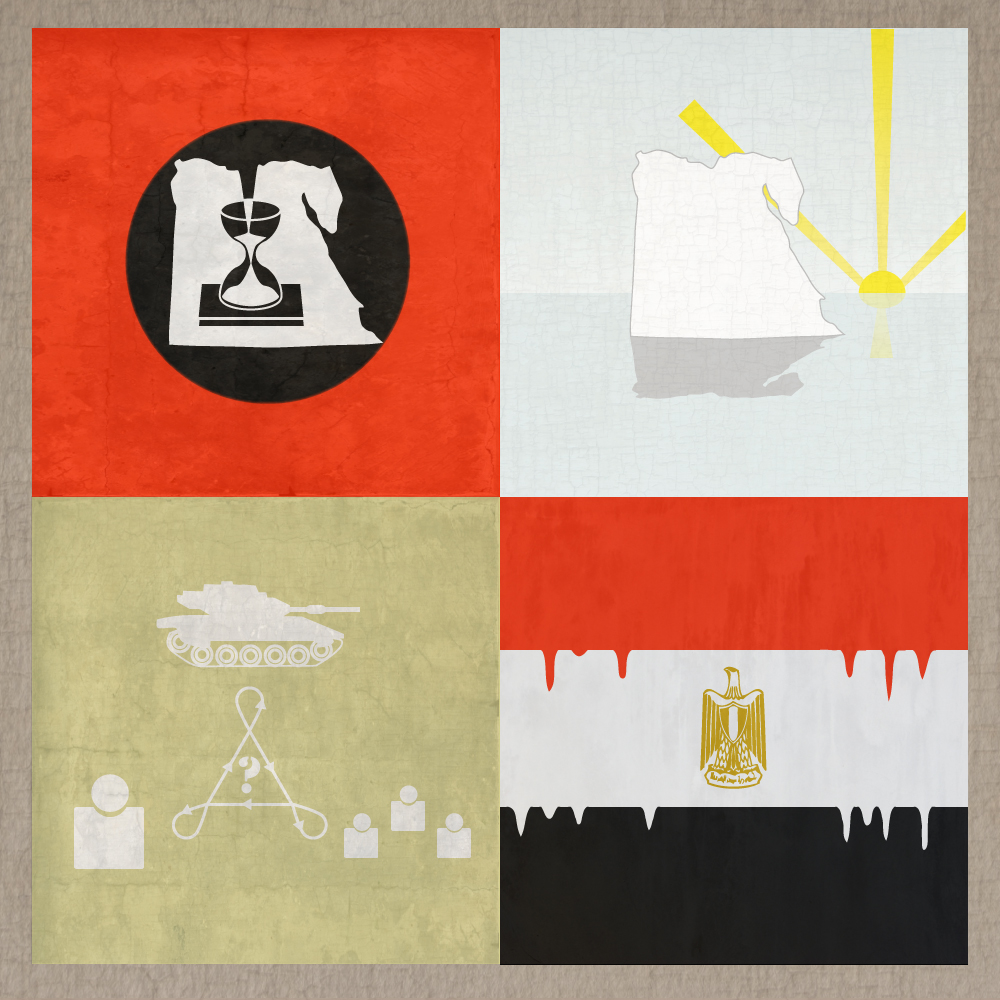
The last month has held so much turmoil in North Africa that it is difficult to keep track of which country is in which stage of revolution. Tunisia led the trend when massive protests forced out their repressive former president on Jan. 14. Two weeks later, Egypt was rocked by huge protests that eventually ousted authoritarian President Mubarak on Feb. 11. Libyans have been protesting their authoritarian government – and specifically the imprisonment of human rights advocates – since Feb. 16. The protests in Libya have been violent, with the country’s leader Muammar el-Qaddafi ordering strikes on civilian protesters that have left hundreds dead.

With so many revolutions going on at the same time, and all in different stages, it is a daunting task to keep track of them all. The news media has been running itself ragged trying to make sure that all the bases are covered, but at times the coverage of these important events has been shunted to the side in the mainstream media. Last week, the New York Times put stories about Libya on the front page more often than not, but coverage on the still developing situation in Egypt was not as consistently highlighted. The same is true of the Wall Street Journal and the Washington Post. This is not to say that those newspapers did not cover the events continuing to unfold in Egypt, merely that with only so much space on the front page, a decision was made to push Egypt and Tunisia coverage to the less prominent International section.
It seems likely that some people will not be up to date with events due to the sheer daunting volume of information. An informal survey of BU students revealed that about as many people knew the basic outline of the revolution in Egypt as didn’t. When asked to briefly describe what they knew about the events in Egypt, answers tended to sound either relatively well-informed, or completely out of touch with events.
Bridgett Ko (CGS ’13) said that she knew “nothing” about Egypt.
Jessica Susser (CAS ’13) said she was “not really up to date with current events.”
Olivia Wyrick (COM ’13) said “this is really embarrassing” before saying that she knew the people of Egypt “want a democracy.”
On the other end of the spectrum, some were able to give a detailed rundown of the past month in Egypt. Eric Cowan (SED ’12) knew the basic events but added that Egypt was getting so much attention “because of its relationship with the US.” Though several people knew that there had been a revolt and that the president had stepped down, most did not have a comprehensive understanding of what had happened since Mubarak stepped down.

The revolt in Egypt achieved its stated goal of ousting Mubarak, and it appears that in the aftermath of that measure of success the world has moved on to other, more ‘exciting’ revolutions. Despite the fact that the microscope of the West is no longer focused directly on Egypt, important and interesting things are still going on there. Since Mubarak stepped down and handed power to the military, the future of the country seems almost more uncertain than before. The New York Times reported this week that the Egyptian Military has its hand in many areas of Egypt’s government and economy. There is very little transparency in military operations, and the military does not seem willing to allow civilians any insight into the inner workings of the military complex. This suggests that any civilian government that is put into place will not have real power over the military. The military suspended the Egyptian constitution in the immediate aftermath of Mubarak’s departure, but has voiced a desire to hand over power to a new government within six months, thus ending the emergency rule that lasted for thirty years. Though it seems that Egypt’s military has real intentions to end its control of government, it also seems possible – though perhaps not likely – that the military could choose not to hand over power on that time table. They do have tanks, after all.
It is important to keep up to date with all of the various revolutions going on in the world at any given time, but it is just as important not to forget the ones that have already happened. Egypt represents a crucial ally for the United States as a stabilizer in the Middle East and as such it should not be relegated to the back burner of news coverage. Egypt has a long road ahead and at this point it has many paths open to it as it pursues a non-authoritarian form of government. It is the responsibility of the mainstream media to continue to cover the events as they unfold, even if there aren’t pictures of thousands of protesters in Cairo anymore.

